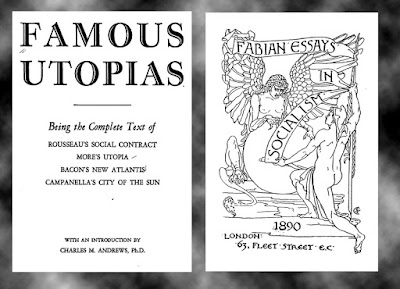This day in history: The Union of Soviet Socialist Republics (USSR) was formed on this day in 1922.
From Daniel Pryor, writing back in 2017
This November marked 100 years since the October Revolution and the beginning of the Soviet Union’s disastrous 69-year experiment with communism. While the horrors of Nazism are well-known, half of British 16- to 24-year-olds have never heard of Lenin, let alone the Holodomor terror-famine.
And although explicit apologists for the Soviet Union are no longer a significant intellectual force in Britain (except those who advise the Labour leadership), my generation is largely unaware of what life was like in the USSR. The once vibrant field of Sovietology is slowly dying, and the failures of central planning are fading from memory.
Compared to the US, economic growth in the USSR was anaemic: the gap between the two widened rather than narrowed over time.
The Adam Smith Institute’s new book Back in the USSR, by José Luis Ricón Fernández de la Puente, aims to illustrate exactly what life was like in the Soviet Union. Were there queues to buy food? How good were Soviet appliances? How did the USSR industrialize so quickly? Was there poverty, unemployment, or inequality? In painstaking detail, Ricón assesses the historical evidence and the claims of leading scholars to provides answers to these questions. The resulting picture is grim.
Economic Stagnation and the Labor Force
At the root of the answer to these questions is the USSR’s productive capabilities. While Soviet GDP growth is sometimes considered to have been exemplary, one cannot look at such figures in isolation. Compared to the United States, economic growth in the USSR was anaemic: the gap between the two widened rather than narrowed over time.
And even this growth came at a cost; with consumption intentionally sacrificed in the name of faster growth rates. Stalin may have managed to achieve a higher level of growth than a counterfactual Tsarist Russia, but this came at a huge price to its population in terms of economic welfare costs alone (without factoring in famine, repression, and terror).
It was also unsustainable, as later stagnation shows. Catch-up growth – adding more capital – is something that planned economies have been able to do. Eventually, however, they reach a point where they need to improve the quality of that capital. That means innovation, something with which they have struggled. Thanks to the inherent problems with central planning, low productivity plagued the USSR. Communism, it turns out, just isn’t very efficient.
Workers in the late Soviet Union were entitled to less than half the amount of holiday leave as OECD countries at the time.
At least everyone had a job, right? Well, sort of. Thanks to Soviet methods of allocating workers to different jobs, factories hoarded labor and created “fake jobs” in case more labor was needed in the future. This resulted in underemployment, with idle workers being underutilized. And working conditions in the USSR fell short of those in more capitalist countries. Workers in the late Soviet Union were entitled to less than half the amount of holiday leave as OECD countries at the time.
As for the idea that high female labor force participation was a feminist triumph for communism, this is difficult to square with Stalin’s abortion bans, legal barriers to divorce, and, by and large, the continuing role of women as homemakers and child-rearers in the Soviet Union. Women didn’t work because they were emancipated from gender norms: they did it because the unsustainable Soviet economic model required it.
Food, Clothing, and Health
These economic shortcomings made day-to-day life in the Soviet Union less than desirable. The average shirt you wear to work cost 10 percent of an average monthly wage: a bargain at just £170 when translated into present-day UK figures. A winter coat to protect you from the Russian cold? A whole month's salary, which might explain why almost a quarter of the Soviet population couldn’t afford one.
When it gets to your lunch break, you’ll only have to queue for a few hours before you enjoy twice as many potatoes as the equivalent American (although you’ll have to make do on half as much meat). Want to keep your leftovers in the fridge? You’ll only have to wait a few years for one. Don’t miss your one-hour collection slot though; you won’t get a second chance. If you want to drive home from work, rather than shiver in your £170 shirt because you can’t afford a winter coat, you’ll have to wait up to ten years for a car. There were only five million cars in the USSR in 1976; Americans owned nearly 100 million.
There were 30 times as many cases of typhoid and cancer detection rates were half as good as in the US.
At some point during your 10-year wait for a car, you might fall ill. Bad luck! The Soviet health system was atrocious. There were 30 times as many cases of typhoid, 20 times as many cases of measles, and cancer detection rates were half as good as in the US. And when compared to other developing countries, the USSR failed to deliver better healthcare outcomes despite having the highest physician-patient ratio in the world (42 per 10,000 population). While you’d be able to see a “qualified” physician, the quality of healthcare left a lot to be desired. Many medical school graduates were not even able to read an electrocardiogram.
As Back in the USSR explores in full detail, the consequences of central planning are dire. Communism promised utopia, but delivered nastier, poorer, and shorter lives.
Reprinted from CapX.
Daniel Pryor is a Young Voices Advocate.
This article was originally published on FEE.org. Read the original article.








